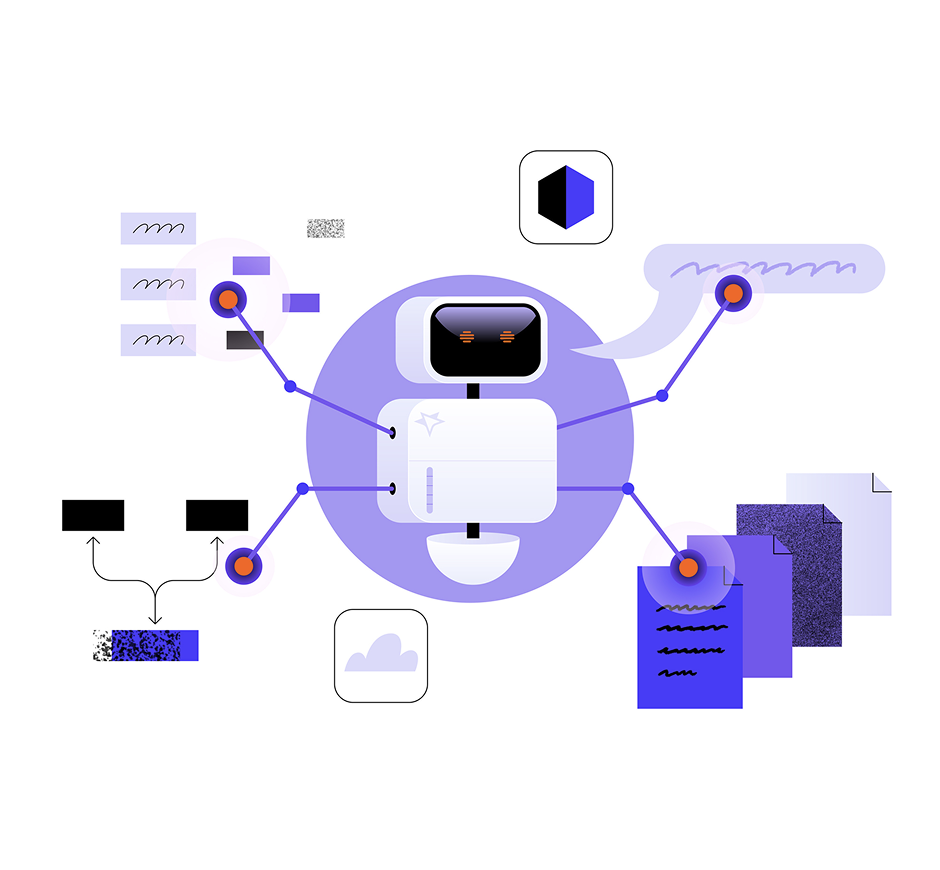LogRocket vs. Multiplayer for technical issues and bugs
From just frontend data to full stack, end-to-end visibility. With Multiplayer you get the full picture on technical issues and bugs, immediately.

How is Multiplayer different?
Full stack visibility, not just frontend data
Multiplayer is laser-focused on shortening debugging workflows and resolving the technical issues that slow your team down.
- LogRocket is primarily a product analytics tool focused on capturing frontend user behavior. Third-party integrations are available to pull sampled backend data per session, but, even then, critical information is still missing. When something breaks or you need to resolve a technical issue, teams must manually piece together the complete picture: hunting through observability tools, correlating timestamps across systems, and searching for user feedback and technical discussions.
- Multiplayer is purpose-built for debugging workflows, focused on resolving technical issues and bugs through complete, correlated session context. Full-stack session recordings automatically connect everything (frontend screens, user actions, backend traces, logs, request/response content and headers, and user feedback) in a single, shared, annotatable timeline. No hunting, no manual correlation, no tool switching.
From day one, developers get all the context, support gets visibility, and end-users get an easy way to report bugs.

Everything you need, for any support scenario, out of the box
Multiplayer adapts to every support workflow. No extra tools, no manual workarounds, no rigid setup. Whether you’re handling a question about “unexpected behavior” or a complex cross-service incident, Multiplayer gives you the full context to resolve it.
- LogRocket is built for product analytics, not technical debugging and support. Recordings are primarily used by PM and UX teams to study behavior trends at scale, which is why the platform relies on always-on frontend capture with limited control over when, what, or how sessions are recorded. Support workflows often require additional configuration, multiple external tools, or features that LogRocket simply doesn’t support.
- Multiplayer enables any support workflow, with any existing ticketing system (e.g. Zendesk, Intercom, Jira). Multiple full stack recording modes give you control without overhead. Multiple installation methods work however your team works. Your team can work across multiple use cases: from actively resolving technical support tickets to proactively identifying bugs so you can fix them before users even realize they are there.
With Multiplayer, a single tool powers many workflows out of the box.

Developer-friendly and AI-native
Multiplayer fits seamlessly into your existing workflows and tool stack.
- LogRocket requires vendor lock-in to achieve full-stack visibility and it’s not optimized for AI-assisted debugging. Integrating with an APM tool requires additional setup, another vendor in your stack, and still leaves you without critical debugging data like request/response content and headers from deep within your system. This also means that their proprietary AI agent is working with partial context, resulting in incomplete suggestions that still leave you doing manual correlation work to fully debug an issue.
- Multiplayer is full-stack, backend-agnostic by default. Full-stack session recordings are compatible with any observability platform and capture everything out of the box. Through its MCP server, Multiplayer provides AI tools with self-contained, complete session units: frontend screens, unsampled backend traces, full request/response payloads, logs, and team annotations all pre-correlated in one place. Any AI tool can access this complete context to generate accurate root cause analysis and fix suggestions without gaps or guessing.
With Multiplayer your AI assistant becomes genuinely useful because it sees the complete picture.

Getting started with Multiplayer
is easy.
A simple, performant interface so you can start recording in minutes. It fits right into your code with SDKs for your favorite programming languages.
Get started with our client library
Install our Chrome Extension
Install our Visual Studio Code extension
You can install the Multiplayer Session Recorder using npm:
npm install @multiplayer-app/session-recorder-browserQuick start
import SessionRecorder from '@multiplayer-app/session-recorder-browser'
SessionRecorder.init({
application: 'my-web-app',
version: '1.0.0',
environment: 'production',
apiKey: 'MULTIPLAYER_API_KEY',
})More languages and CLI SDKs can be found in our documentation.
LogRocket helps you understand frontend bugs
Multiplayer helps you understand and fix technical issues and bugs across your entire stack
Core differences
| LogRocket | Multiplayer | |
|---|---|---|
| PRIMARY USE CASE | Product analytics and frontend monitoring | Deep, collaborative investigation of technical support issues, bugs and escalations |
| USERS | Product, Marketing and UX | Customer Support, Developers, QAs, end-users and external partners |
| SESSION REPLAYS | Limited Add-on to frontend analytics, always-on recording with limited versatility for different support workflows | Versatile by design with rich feature-set Multiple recording modes, install options, and supported use cases |
| DATA PER SESSION | Limited Frontend data by default, with third-party integrations required for sampled backend data and custom instrumentation for full stack data | Full stack data, backend agnostic Compatible with any observability platform, language, environment, architecture, AI tool and deployment, out of the box. Includes data third-party integrations don’t provide, such as unsampled traces and request/response content and headers for components deep in your system. |
| TEAM COLLABORATION | Limited View and share session replays | View, share, and annotate every aspect of a session recording |
| AI CAPABILITIES | Native AI tool to interrogate and summarize session replays | Sessions are AI-ready from frontend screens, to backend traces, to team annotations. The MCP server feeds complete, correlated and enriched context to your IDE or AI tool of choice |
Session recording features
| Feature | LogRocket | Multiplayer |
|---|---|---|
| Installation method | ||
| SaaS and self-hosted deployment | ||
| Web & mobile applications | ||
| Data per session | ||
| Recording modes | ||
| Auto-saved sessions for errors or exceptions | ||
| Session recording sharing | ||
| Session recording annotation | ||
| Notebooks for team collaboration | ||
| Masking sensitive user information | ||
| Session recording searchability | ||
| Dashboards | ||
| MCP server |
Session recording data
| Feature | LogRocket | Multiplayer |
|---|---|---|
| User clicks + inputs | ||
| Page navigations + loads | ||
| Session metadata (device, runtime environment, browser, OS) | ||
| DOM events | ||
| Console messages | ||
| Network requests | ||
| HTML source code | ||
| Backend errors | ||
| Correlated distributed traces | ||
| User feedback | ||
| Request/response content | ||
| Headers | ||
| Service and dependency maps | ||
| Repositories |
Why use Multiplayer?

Understand unclear, hard-to-describe issues
Users often report confusing behavior or ask questions that require technical clarity. Sometimes the tickets themselves are ambiguous or incomplete. Multiplayer shows exactly what happened on the user's end, so support teams can answer quickly and confidently. No need to ask users for “more info” or escalate unnecessarily.
Resolve complex technical issues or bugs dramatically faster
With full stack session recordings, Multiplayer lets you instantly see how bugs happened in a single timeline, automatically correlating data across all layers of your stack. It reduces guesswork , shortens investigation time, and saves hours from grepping through log files or jumping between dashboards and screens.
Eliminate costly, repetitive escalations
Multiplayer removes the back-and-forth that slows support and debugging workflows down. Support can review a user’s full session, annotate it, and escalate with complete context, so engineering can diagnose issues without reconstructing missing data. Cut down on meeting loops, duplicate work, and miscommunication, and get users to a resolution faster.
Book a call with us and
get up and running right away.
Schedule a call with our team to see all of our features and explore if Multiplayer is right for you.
Book a demoTalk to one of our experts and see Multiplayer in action.
Get 1 month free to test all our features and experience the full power of Multiplayer.
Check out our in-depth technical documentation.
Best practices on software architecture, system design, debugging, and observability.